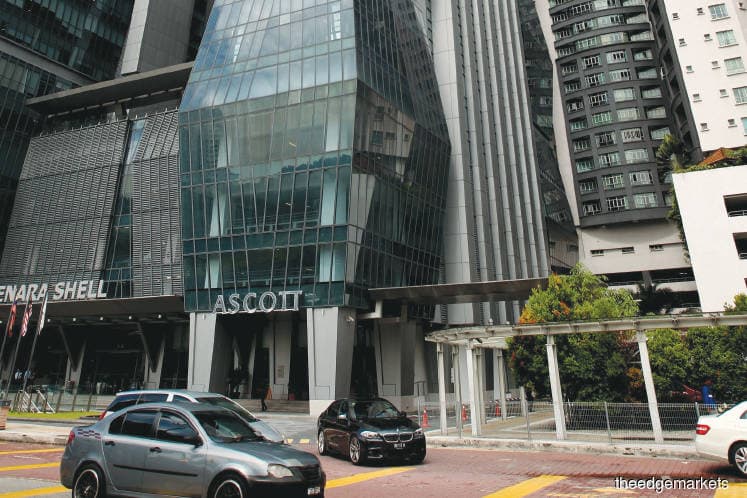
This article first appeared in The Edge Malaysia Weekly on November 19, 2018 - November 25, 2018
LAST Monday, Malaysian Resources Corp Bhd (MRCB) announced that its wholly-owned subsidiary MRCB Lingkaran Selatan Sdn Bhd had entered into a termination and settlement agreement with the government on the Eastern Dispersal Link (EDL) concession.
The much-anticipated agreement moves MRCB a step closer to paring down its gearing as it will erase RM1 billion of debt from the company’s books and relieve it of RM80 million in interest costs per year.
Post the EDL disposal, MRCB’s net gearing will be lowered to 0.28 times from 0.53 times as at Dec 31, 2017, the company says in a filing with Bursa Malaysia.
After the government pays RM1.32 billion under the termination and settlement agreement, MRCB will be left with RM23.1 million for general working expenses upon repayment of its borrowings.
Analysts concur that the pressure on MRCB has eased with the certainty of compensation for the disposal of the EDL and with its gearing about to be reduced to more manageable levels.
“The worst is over for MRCB. The reduction in gearing helps a lot and it has a breathing space for the projects it plans to carry out,” observes AmInvestment Research analyst Thong Pak Leng.
It is noteworthy that MRCB’s gearing will be lowered even further after the sale of an 80% stake in the Bukit Jalil Sentral project to the Employees Provident Fund for RM1.14 billion. An Oct 9 report by Macquarie Research highlights that the land sale is pending the approval of the Ministry of Economic Affairs.
“Management says MRCB has met all the conditions precedent of the sale contract and it believes there should not be any more hiccups in the deal’s conclusion by year-end,” it says.
Other assets that MRCB has been looking to sell are its 21-storey serviced apartment development Ascott Sentral in Kuala Lumpur and Menara Celcom in Petaling Jaya.
Although its asset sales will push down its gearing, investors are concerned about MRCB’s prospects, given the soft property market and construction slowdown.
The company reported a revenue of RM833 million for the cumulative six months ended June 30, 50% of which was derived from property development and 46% from construction.
Of the RM58 million net profit made in the six months, 65% was from property development while construction contributed the rest.
The disposal of the EDL concession was mentioned in Budget 2019, indicating a RM1.3 billion compensation. Shortly after that, CIMB Investment Bank Research upgraded the counter from a “reduce” recommendation to an “add” with a target price of 90 sen compared with 65 sen previously.
However, it struck a cautious note. “We note that considering the overall construction sector’s fundamental risks arising from a slowdown in contracts in 2019 and the sustained lacklustre phase of the property sector, our upgrade from Reduce to Add is therefore more trading-oriented.”
On the whole, a lack of large-scale infrastructure projects and revisions to existing contracts have hit the construction sector hard, which means order-book replenishment will become increasingly competitive and challenging.
Meanwhile, the property market has been in the doldrums for several years now. While the measures announced in Budget 2019 will help lift sentiments and reduce the overhang, especially in the affordable housing segment, it is still early days.
As at June 30, MRCB’s construction order book was worth RM6.5 billion while its property development projects, excluding Bukit Jalil Sentral, had a total gross development value (GDV) of RM31 billion.
At RM10.55 billion, Kwasa Sentral is its largest property project in GDV terms. A transport-oriented development, it is designed to serve as the central business district for the entire Kwasa Damansara township and is understood to be getting off the ground sometime next year.
Infrastructure projects account for the bulk or 63% of MRCB’s construction order book, the largest being Kwasa Utama C8, which has a contract value of RM2.95 billion.
MRCB’s other major construction projects include the MRT2 V210 package (RM604 million), the DASH-Package CB2 (RM369 million) and the revised LRT3 contract with its joint-venture partner George Kent (M) Bhd at a fixed cost of RM11.85 billion.
An analyst with a bank-backed research house believes that MRCB will derive most of its earnings from the construction sector next year when work on LRT3 shift into high gear. “Following the revision (of its role) from project delivery partner to turnkey contractor, the question now revolves around the margins it will reap. We will have to wait one or two quarters to see what its earnings are like to determine the margins,” he comments.
For a project delivery partner, there is a fixed fee of 6% of the project’s value but a turnkey contractor gets a fixed contract sum. Thus, the margins will depend on the execution and cost savings that can be made.
MRCB’s share price has lost nearly a fourth of its value over a one-year period, from RM1.04 to 74.5 sen.
AmInvestment’s Thong believes MRCB’s future earnings will be stable but he says he does not see any catalyst that can really drive its income. He has a “neutral” call on the counter with a target price of 83 sen.
Nevertheless, there are seven “buy” and three “hold” recommendations on the stock with an average target price of 92 sen. Analysts believe MRCB’s shares have been oversold and expect some reprieve with the LRT3 contract and the disposal of the EDL concession.
Save by subscribing to us for your print and/or digital copy.
P/S: The Edge is also available on Apple's AppStore and Androids' Google Play.